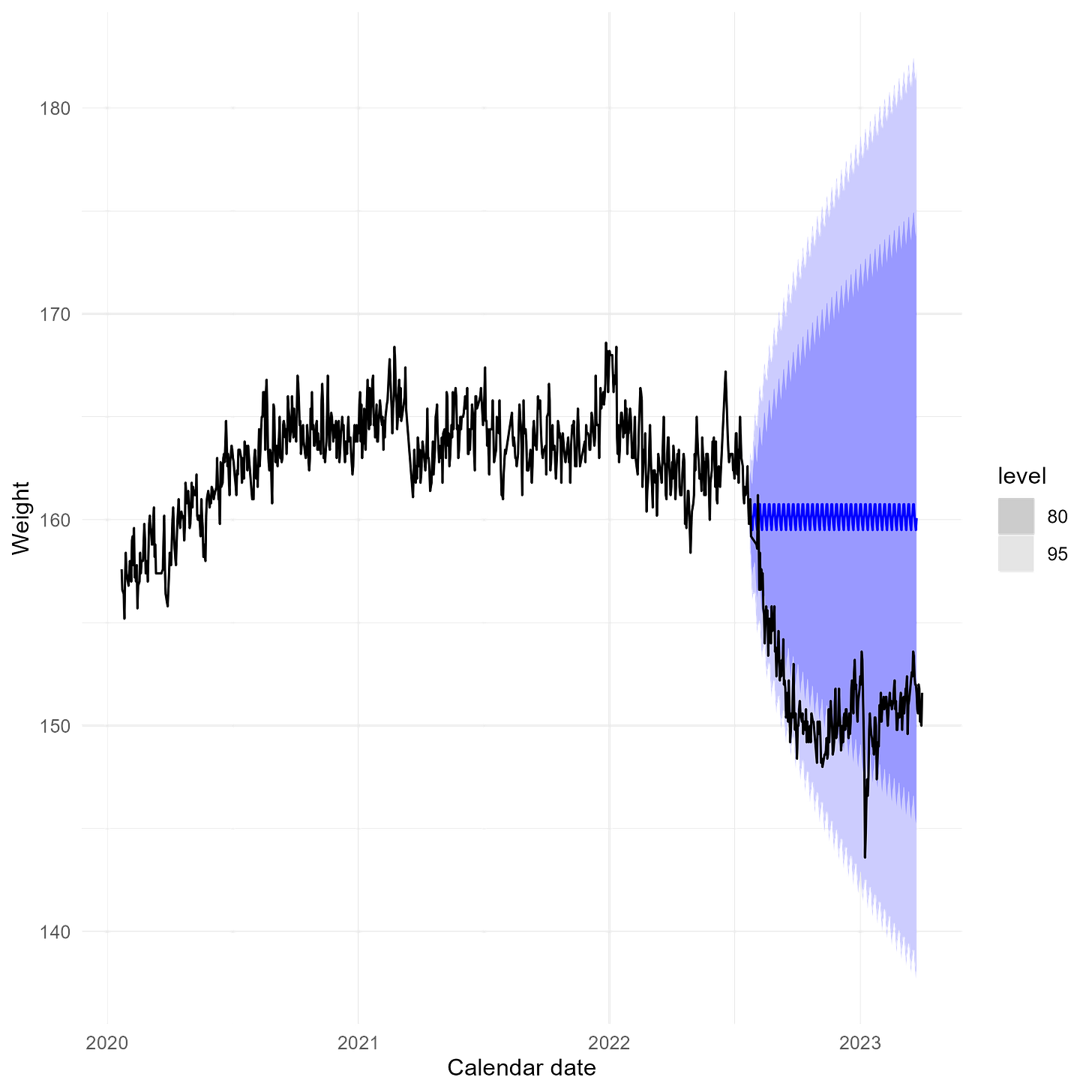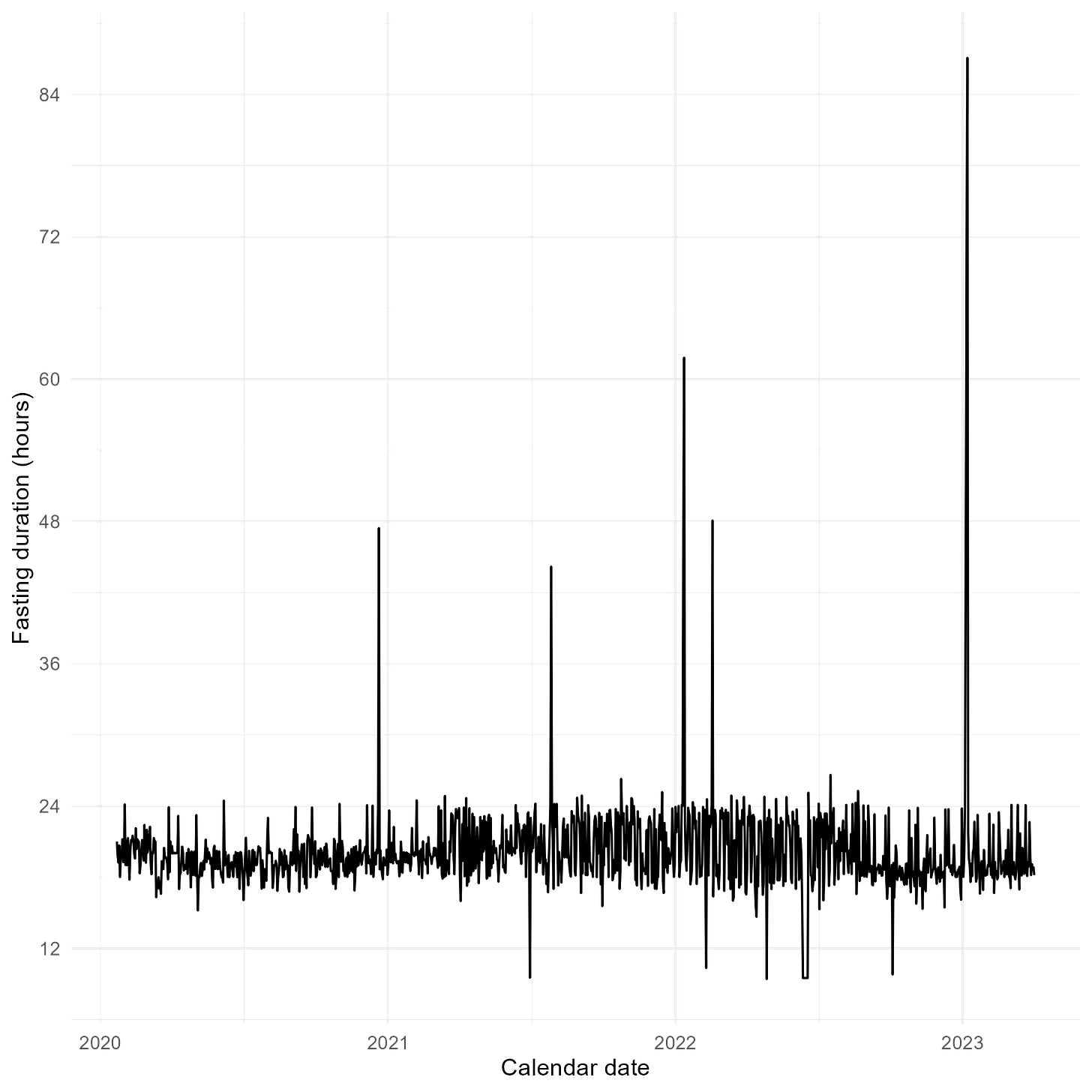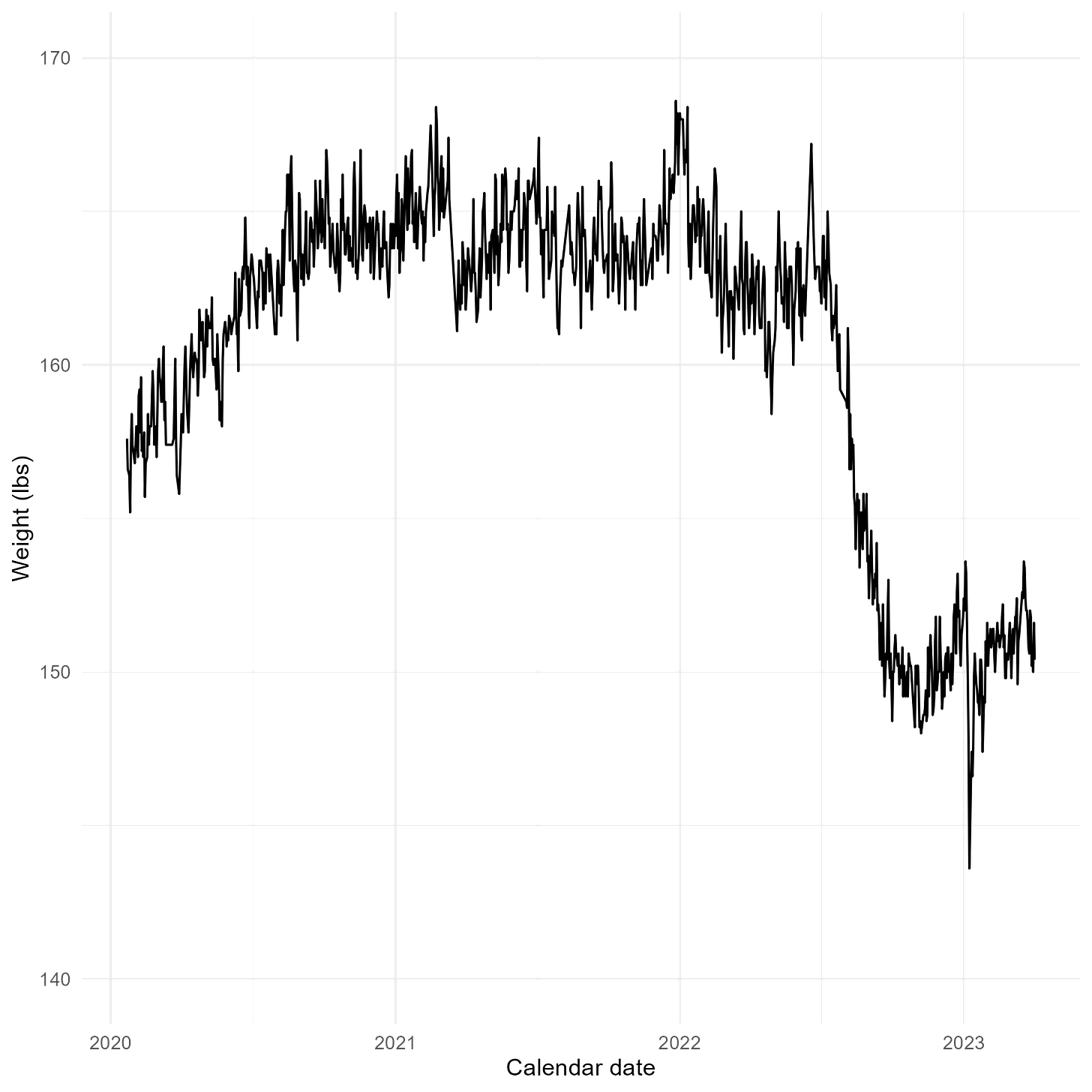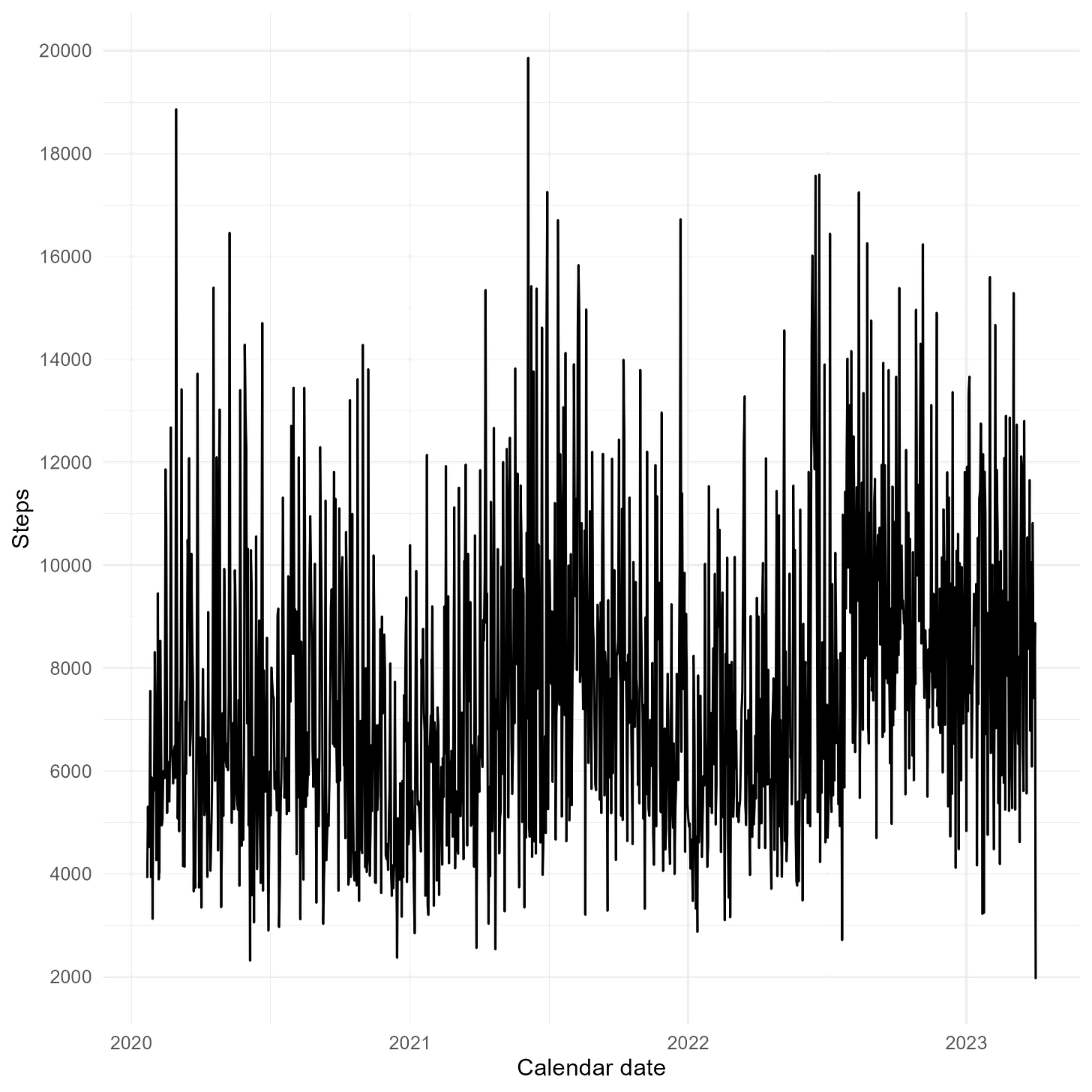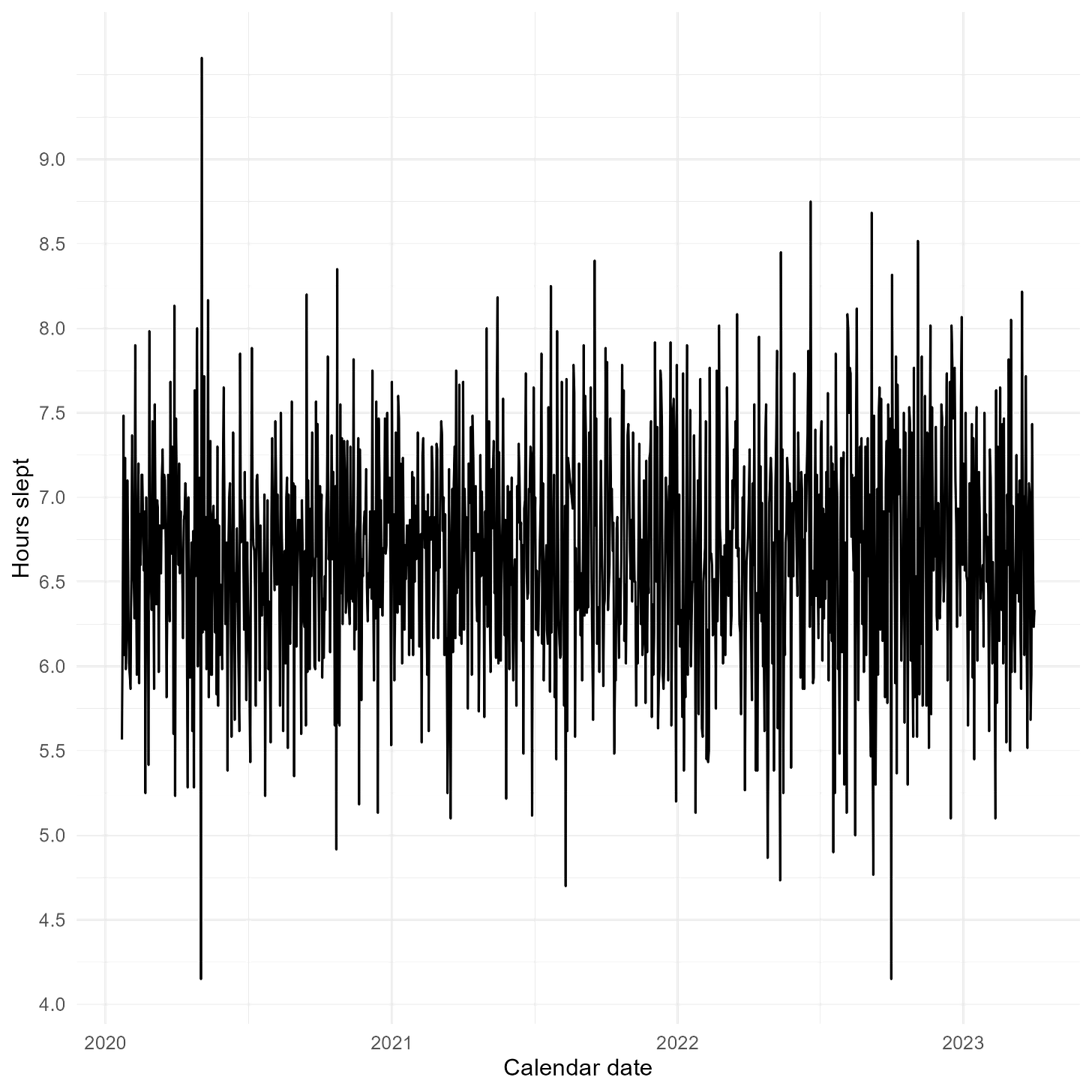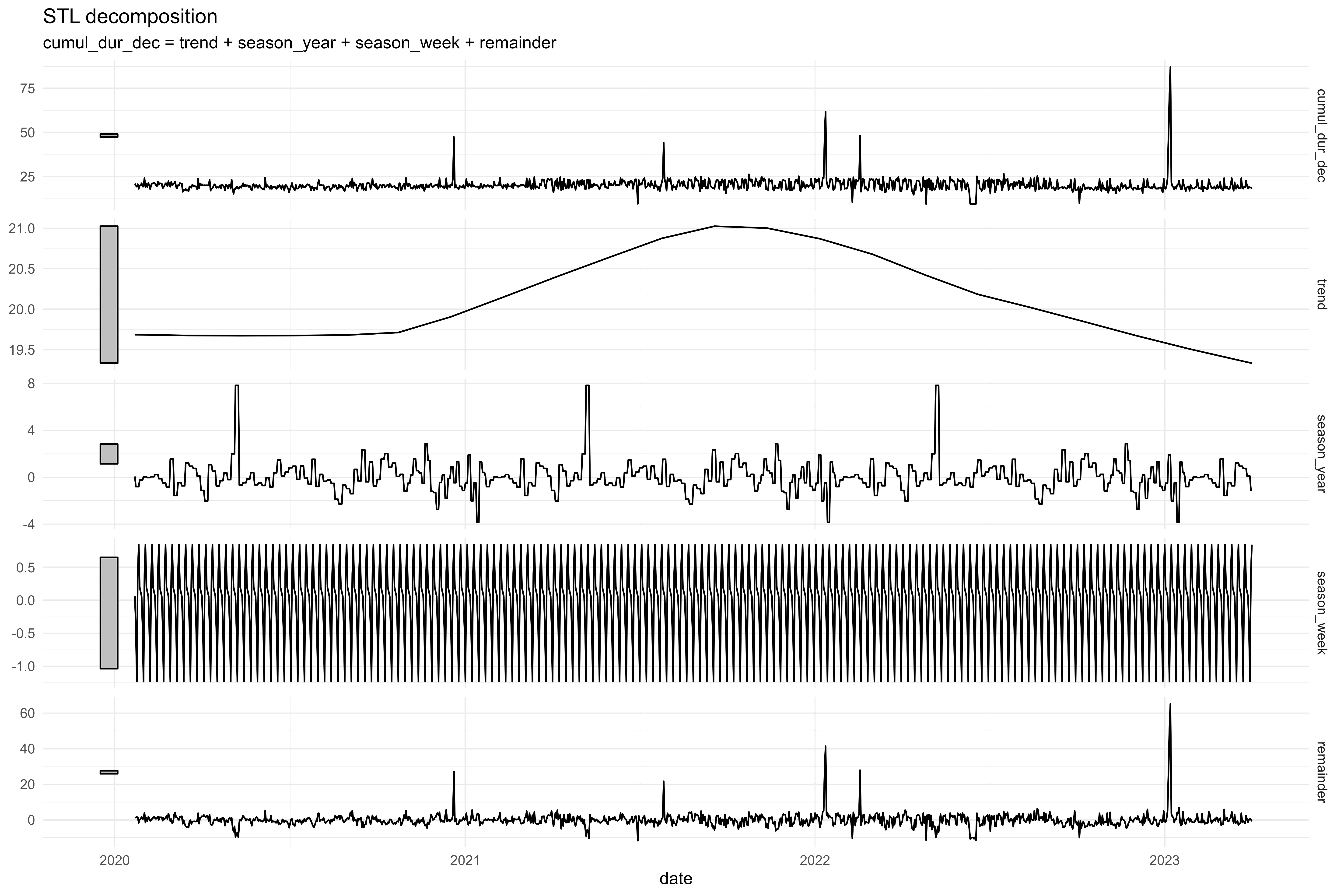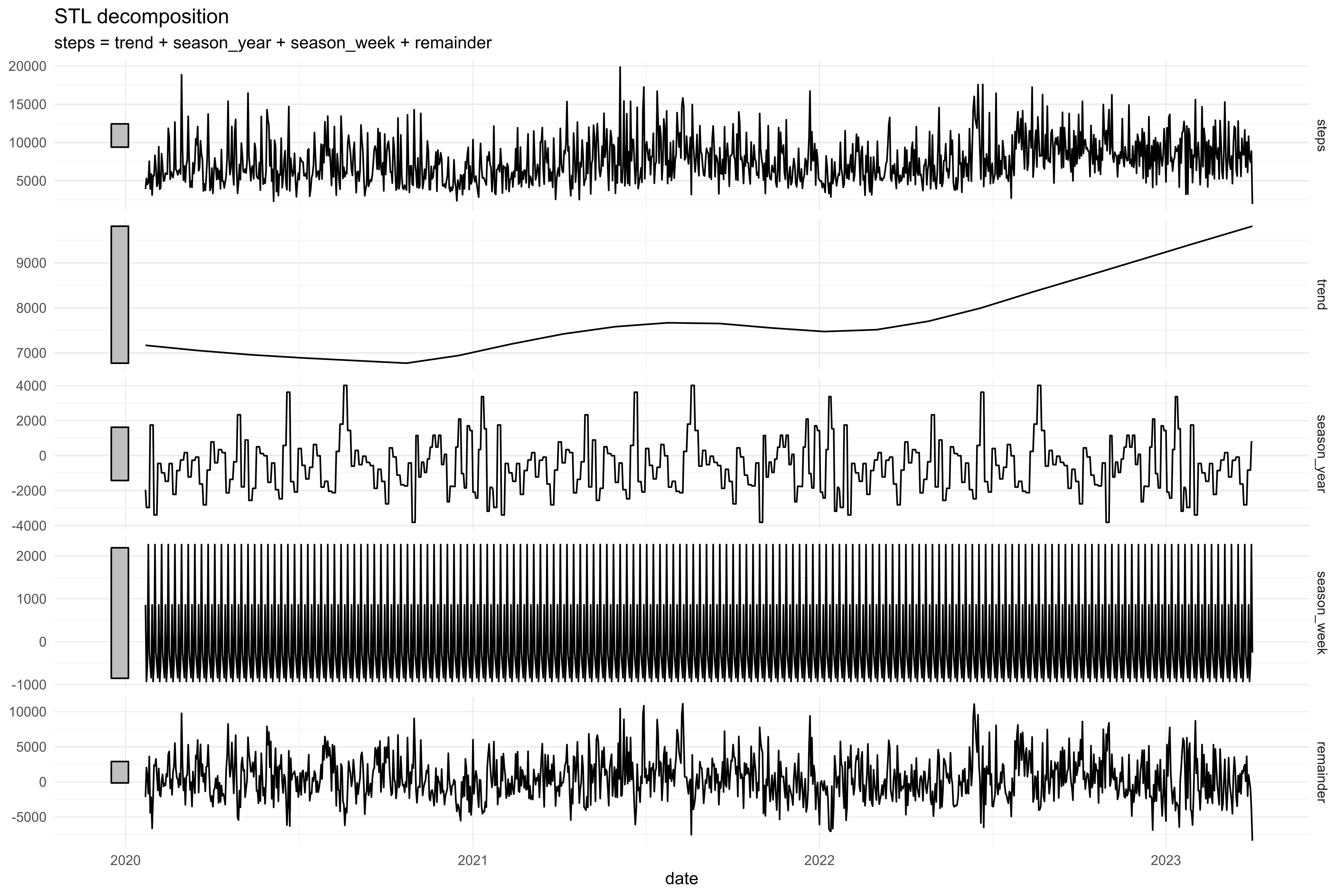TL;DR: On this put up, I share how I misplaced 15 kilos (≈ 7 kg) in lower than 4 months and saved it off for six months (and counting). I did this by consuming solely throughout sure hours of the day, altering what I ate, and exercising extra. I additionally clarify how these three issues work collectively to assist me drop extra pounds and keep wholesome. Furthermore, I counsel how different individuals would possibly profit from attempting one thing related.
Think about skipping breakfast each single day for 4 and a half years. Sounds loopy, proper? Nicely, that’s precisely what I’ve been doing since my mother-in-law first launched me to intermittent fasting (or time-restricted consuming, because the consultants name it).
Intermittent fasting is a well-liked development amongst well being fans who declare it will possibly show you how to drop extra pounds, enhance your metabolism, and forestall ailments. However does it actually work, and if it does, is it price not consuming so steadily? Current medical proof on this subject appears to contradict widespread opinion (see right here, right here, and right here) by stating that fasting doesn’t result in weight reduction in the long term. Is there an evidence that would reconcile these contradictions?
To resolve this for myself, I made a decision to observe 4 main well being variables on daily basis for over three years: fasting period, pedometer steps, sleep, and physique weight. This put up accommodates a full evaluation of the ensuing information (information and R code are publicly out there right here). Hopefully it will likely be clear what has and hasn’t labored for me. And perhaps what has labored for me will give you the results you want! However, after all, that’s the difficulty with N=1 analyses: it’s inconceivable to understand how they are going to generalize.
-
It’s doable (and perhaps even simple?) to achieve weight even whereas aggressively shortening consuming durations!
That is the factor that shocked me probably the most.
-
I misplaced about 15 kilos over a 3-4 month interval by combining time-restricted consuming, eating regimen, and common train. What you devour throughout your consuming interval appears to matter way more than how quick your consuming interval is.
-
Train doesn’t should be bold, high-intensity, or time-consuming to be efficient.
-
Fasting appears to produce other advantages apart from weight reduction: Since I start limiting my consuming durations on daily basis, I haven’t gotten sick—no flu, no Covid, nothing apart from an occasional gentle chilly—and I’ve typically simply felt “higher.”
This video supplies some proof on different well being metrics that I can’t measure myself.
-
It’s loads of work to keep up a wholesome physique weight on this planet we reside in. And odds are that I’ve a genetic benefit to start out with!
Based mostly on my expertise, plainly others may gain advantage from adopting the next behaviors on a constant foundation:
-
Sustainability is vital: discover belongings you like and lean into them. Don’t be afraid to often cheat, however should you cheat an excessive amount of, you then’ve modified your program.
-
Stroll on daily basis for the equal of 1 hour—about 3 miles. It doesn’t should be in a single go, and would possibly even be extra useful if it’s not unexpectedly.
-
Take note of what you’re consuming. Decreasing sugar, processed carbohydrates, and seed oils appears to have a excessive cost-benefit ratio.
-
It’s not a lot “eat much less, transfer extra” as it’s “eat good, transfer good.” “Sensible” right here is “sustainable” (see the bullet level above). What isn’t good is adopting the favored exercise-for-reward mindset. Considering, “I ran a 5K so now I can get pleasure from this [food that is objectively bad for me]” is just not wholesome.
-
Altering one’s preferences appears to be the one long-term answer. And it’s a massively tough downside given the social position that meals performs all through our lives. Even when an individual decides to undertake a special way of life, there’ll all the time be social gatherings amongst household, mates, or coworkers that includes meals that go in opposition to that particular person’s well being objectives.
I saved monitor of my day by day fasting period, weight, steps, and sleep from January 22, 2020 till April 1, 2023 (≈39 months or 1,166 days). Knowledge on fasting, steps, and sleep goes again even additional.
The image under tells a lot of the story.
I’ve persistently fasted for over 19 hours (on common) all through this era. My sleep hasn’t modified a lot (deviating by lower than 10 minutes). My steps and weight, nonetheless, assorted fairly a bit and are almost mirror photos of each other. When my weight was trending upward throughout 2020, my steps had been trending downward. Then when my weight began plummeting, my steps took off.
After all, everyone knows that taking a look at two trending time sequence variables is no method to decide causality. On this case, I do know that I made vital modifications to my eating regimen on the identical time I used to be ramping up my steps.
I made the next modifications after studying the e book Two Meals A Day in late July 2022 (see right here for extra particulars):
-
Get no less than 7,000 steps every day (about 5 kilometers)
-
Attempt to keep lively all through the day by doing “microworkouts” or “motion snacks”
-
Get rid of or dramatically scale back seed oils and processed carbohydrates (together with sugar) from eating regimen
-
Attempt to eat extra “ancestral meals” like kefir, nuts, eggs, organ meats, and many others.
These had been up to the mark I used to be already doing which are arguably wholesome:
-
No alcohol or smooth drinks
-
Placing no less than 18-22 hours between meals on daily basis
-
Taking part in outdoors with my youngsters almost on daily basis
-
Taking part in pickup basketball as soon as every week
-
Newbie-level calisthenics 2x-3x per week
Why wasn’t I seeing extra good points earlier than Two Meals A Day? Most likely as a result of I used to be nonetheless doing issues like consuming sugar cookies, donuts, pizza, ice cream, and Frito-Lay merchandise regularly.
I did a while sequence regression evaluation of my weight, utilizing an ADL or “autoregressive distributed lag” mannequin. The outcomes are on the very backside of this put up. Importantly, I used de-trended, seasonally adjusted information as not doing so might lead to spurious correlations. Even then, it’s not clear how conclusive the evaluation is.
Some takeaways:
-
physique weight has a excessive quantity of autocorrelation (one-day-lag coefficient of 0.68)
-
steps, sleep, consuming window size, long-fasting, touring, and consuming pizza all at some stage “Granger trigger” weight, however the magnitudes and statistical significance had been decrease than I’d have guessed.
To evaluate the affect of Two Meals A Day, I did a easy time forecast of my weight from the second earlier than I started this system. Right here’s what it appears to be like like:
Whereas I doubt this forecast would cross muster at a severe tutorial journal, the essential result’s that my weight reduction was unlikely to have occurred by probability primarily based on the prior historical past.
On this weblog put up, I’ve shared my private expertise of preserving my weight below management by following some ostensibly easy tips. I’ve discovered what works for me, however will it work for different individuals? And, if that’s the case, will different individuals have the ability to frequently observe these tips? These are key questions.
Weight problems is just accelerating worldwide, so it’s essential to determine the way to gradual its progress. Decreasing consumption of processed meals, tightening consuming home windows, and rising bodily exercise have been profitable methods for me to drop extra pounds. However I do know it’s not for everybody.
The broader query stays: is there a “shortcut” to staying at a wholesome weight that doesn’t contain fixed overanalysis of non-public conduct? Semaglutide and Wegovy have confirmed useful for individuals already overweight, however what about people who find themselves presently at a wholesome weight however attempting to keep away from turning into overweight? It appears that there’s a tight trade-off between scrumptious meals and obese or weight problems.
There’s additionally a philosophical query, properly said by Scott Alexander: “What can we do if the enemy [causing obesity] is deliciousness itself?” Ought to we try and rid ourselves of all culinary pleasure simply to be somewhat more healthy? Would this even be doable given how related authorities and agriculture are?
I’m unsure what the solutions to those questions are, however I plan to proceed following the trail I’ve documented right here. I additionally plan to test in from time-to-time to report my progress and anything I’ve discovered. One factor I’ve seen is that my meals preferences have modified. After separating myself from extremely rewarding meals, now I normally really feel sick if I deviate from my routine and eat some. I believe we as a (U.S.) nation and world could make loads of progress if we really cease and take into consideration what our physique is telling us after we eat.
Here’s a record of assets that I’ve discovered useful (in no explicit order)
Word: max = 168.6; min = 143.6
Beneath are some graphs of STL decompositions (which are supposed to internet out developments and seasonality) for the three variables of curiosity:
Coefficients:
Estimate Std. Error t worth Pr(>|t|)
(Intercept) 0.026470 0.031951 0.828 0.40759
lag(weight_adj) 0.683718 0.030010 22.783 < 2e-16 ***
lag(weight_adj, 2) 0.066959 0.036294 1.845 0.06532 .
lag(weight_adj, 3) 0.060335 0.036210 1.666 0.09594 .
lag(weight_adj, 4) -0.013098 0.036271 -0.361 0.71808
lag(weight_adj, 5) 0.038685 0.036184 1.069 0.28524
lag(weight_adj, 6) 0.019919 0.035834 0.556 0.57842
lag(weight_adj, 7) 0.084189 0.029228 2.880 0.00405 **
lag(steps_adj) 0.027554 0.009965 2.765 0.00579 **
lag(steps_adj, 2) 0.004989 0.010187 0.490 0.62443
lag(steps_adj, 3) -0.007869 0.010180 -0.773 0.43966
lag(steps_adj, 4) -0.005481 0.010207 -0.537 0.59138
lag(steps_adj, 5) 0.001039 0.010239 0.101 0.91917
lag(steps_adj, 6) -0.020589 0.010199 -2.019 0.04375 *
lag(steps_adj, 7) -0.007502 0.009963 -0.753 0.45161
lag(sleep_adj) 0.118892 0.040923 2.905 0.00374 **
lag(sleep_adj, 2) 0.066188 0.040890 1.619 0.10580
lag(sleep_adj, 3) 0.053902 0.040978 1.315 0.18865
lag(sleep_adj, 4) 0.024485 0.041068 0.596 0.55116
lag(sleep_adj, 5) 0.044860 0.041068 1.092 0.27492
lag(sleep_adj, 6) -0.042833 0.041056 -1.043 0.29704
lag(sleep_adj, 7) 0.057118 0.040998 1.393 0.16384
lag(fasting_adj) 0.002068 0.010871 0.190 0.84919
lag(fasting_adj, 2) -0.051258 0.011196 -4.578 5.22e-06 ***
lag(fasting_adj, 3) 0.014489 0.011374 1.274 0.20298
lag(fasting_adj, 4) -0.004086 0.011380 -0.359 0.71962
lag(fasting_adj, 5) -0.003944 0.011321 -0.348 0.72760
lag(fasting_adj, 6) 0.014862 0.011199 1.327 0.18477
lag(fasting_adj, 7) 0.014215 0.010685 1.330 0.18366
lag(long_fast_adj)TRUE -2.410448 0.509853 -4.728 2.56e-06 ***
lag(long_fast_adj, 2)TRUE 1.548376 0.527838 2.933 0.00342 **
lag(long_fast_adj, 3)TRUE -0.823346 0.529265 -1.556 0.12008
lag(long_fast_adj, 4)TRUE 0.152474 0.531785 0.287 0.77438
lag(long_fast_adj, 5)TRUE 0.553852 0.531203 1.043 0.29734
lag(long_fast_adj, 6)TRUE -0.389027 0.527677 -0.737 0.46113
lag(long_fast_adj, 7)TRUE -0.517277 0.518252 -0.998 0.31844
lag(touring)TRUE -0.448206 0.192564 -2.328 0.02011 *
lag(touring, 2)TRUE 0.211959 0.256076 0.828 0.40801
lag(touring, 3)TRUE -0.182161 0.257267 -0.708 0.47905
lag(touring, 4)TRUE 0.354994 0.257049 1.381 0.16755
lag(touring, 5)TRUE -0.098319 0.257247 -0.382 0.70239
lag(touring, 6)TRUE 0.240977 0.258143 0.934 0.35076
lag(touring, 7)TRUE -0.181877 0.193124 -0.942 0.34652
lag(ate_pizza)TRUE 0.130628 0.178043 0.734 0.46329
lag(ate_pizza, 2)TRUE 0.165101 0.178906 0.923 0.35629
lag(ate_pizza, 3)TRUE -0.101685 0.179490 -0.567 0.57115
lag(ate_pizza, 4)TRUE 0.195732 0.179730 1.089 0.27637
lag(ate_pizza, 5)TRUE 0.432669 0.179346 2.412 0.01601 *
lag(ate_pizza, 6)TRUE -0.222697 0.179327 -1.242 0.21455
lag(ate_pizza, 7)TRUE -0.305294 0.178336 -1.712 0.08719 .
---
Signif. codes: 0 ‘***’ 0.001 ‘**’ 0.01 ‘*’ 0.05 ‘.’ 0.1 ‘ ’ 1
Residual normal error: 0.9337 on 1109 levels of freedom
(7 observations deleted as a result of missingness)
A number of R-squared: 0.8069, Adjusted R-squared: 0.7984
F-statistic: 94.59 on 49 and 1109 DF, p-value: < 2.2e-16

